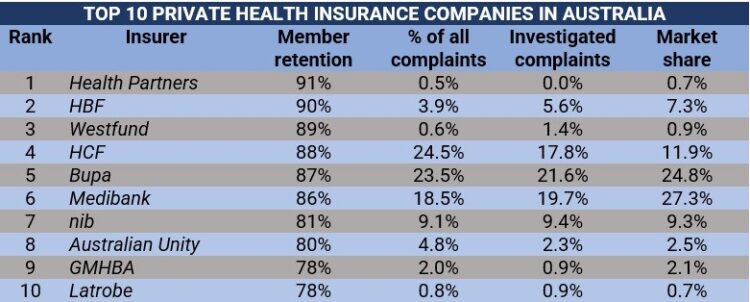
Do you need health insurance in Australia? It’s a question many Australians ask themselves, especially with the complexities of the public and private healthcare systems. Understanding your options and the potential benefits and drawbacks is crucial for making informed decisions about your health and finances.
Australia’s healthcare system is a unique blend of public and private options. Medicare, the public health insurance program, provides essential healthcare services, but it doesn’t cover everything. Private health insurance offers additional coverage, including access to private hospitals and specialized treatments. Whether you need private health insurance depends on your individual circumstances, including your health needs, financial situation, and lifestyle choices.
Understanding Australian Healthcare System

Australia has a unique healthcare system that combines universal public healthcare with private health insurance options. This system aims to provide affordable and accessible healthcare for all Australians.
Medicare
Medicare is Australia’s universal public health insurance scheme. It is funded by the government through taxes and provides essential healthcare services to all Australian citizens and permanent residents. Medicare covers a wide range of services, including:
- Doctor consultations
- Hospital treatment (public hospitals)
- Some medical tests and procedures
- Prescription medications (subsidized through the Pharmaceutical Benefits Scheme)
Medicare is a valuable asset for Australians, providing access to essential healthcare services at a low cost. However, it does have some limitations. For example, Medicare does not cover all medical expenses, such as:
- Dental care (except for some children)
- Eye care (except for some children)
- Physiotherapy and other allied health services
- Private hospital treatment
Furthermore, there are waiting times for elective surgery and some specialist consultations under Medicare.
Private Health Insurance
Private health insurance is a supplementary option that can cover additional healthcare expenses not covered by Medicare. It provides access to a wider range of services, including:
- Private hospital treatment
- Dental care
- Eye care
- Physiotherapy and other allied health services
Private health insurance comes in various types, each offering different levels of coverage and benefits. These types include:
- Hospital cover: Covers hospital expenses, such as accommodation, surgery, and other medical procedures.
- Extras cover: Covers additional services like dental, optical, physiotherapy, and other allied health services.
- Combined cover: Offers a combination of hospital and extras cover, providing comprehensive coverage.
The cost of private health insurance varies depending on the level of coverage, age, and health status. Individuals can choose a policy that best suits their needs and budget.
Eligibility for Medicare

Medicare, Australia’s universal healthcare system, provides essential medical services to eligible individuals. To access these services, you must meet specific criteria Artikeld by the Australian government.
Eligibility Criteria for Medicare
Eligibility for Medicare depends on your residency status and citizenship.
- Australian Citizens: All Australian citizens are automatically eligible for Medicare, regardless of their age or income.
- Permanent Residents: Permanent residents of Australia are also eligible for Medicare. They must have held their permanent residency visa for at least 104 days to qualify.
- Temporary Residents: Temporary residents of Australia are not automatically eligible for Medicare. They may be eligible if they meet certain conditions, such as holding a specific visa or being a dependent of a permanent resident or citizen.
Eligibility for Temporary Residents
Temporary residents can access Medicare if they hold a specific visa that grants them eligibility.
- Working Holiday Visa: Temporary residents on a working holiday visa are eligible for Medicare for the duration of their visa.
- Student Visa: International students on a student visa are also eligible for Medicare for the duration of their visa.
- Other Visas: Certain other temporary visas, such as those for skilled workers or investors, may also grant eligibility for Medicare. It’s crucial to check the specific visa conditions to determine eligibility.
Examples of Eligibility
Here are examples of individuals who may or may not be eligible for Medicare:
- Example 1: A student from the United States on a student visa is eligible for Medicare for the duration of their visa.
- Example 2: A tourist from the United Kingdom on a tourist visa is not eligible for Medicare. They would need to purchase private health insurance if they require medical treatment.
- Example 3: A permanent resident of Australia who has held their visa for more than 104 days is eligible for Medicare.
Benefits of Private Health Insurance

Private health insurance can provide additional benefits beyond Medicare, offering a wider range of healthcare options and potentially faster access to treatments. This is particularly beneficial for individuals who want to avoid long wait times for elective procedures or prefer to choose their own doctors and hospitals.
Coverage for Hospital Stays
Private health insurance covers a range of hospital expenses, including accommodation, surgery, and medical care. It can provide access to private hospitals, often offering more comfortable amenities and shorter wait times. Depending on the policy, it can also cover expenses related to medical equipment and rehabilitation.
Coverage for Medical Procedures
Private health insurance can cover the cost of a variety of medical procedures, such as dental work, eye care, and physiotherapy. It can also provide access to specialist doctors and alternative therapies not covered by Medicare.
Coverage for Ancillary Services
Some private health insurance policies cover ancillary services, such as physiotherapy, chiropractic care, and psychology. These services can help with rehabilitation, pain management, and mental health support.
Comparing Private Health Insurance Policies
Different private health insurance policies offer varying levels of coverage and benefits. Some policies may cover a broader range of services, while others may have lower premiums. It is important to compare different policies and choose one that best meets your individual needs and budget.
Types of Private Health Insurance Policies
There are various types of private health insurance policies available in Australia, each with its own features and costs. The most common types include:
| Policy Type | Key Features | Cost |
|---|---|---|
| Hospital Cover | Covers hospital expenses, including accommodation, surgery, and medical care. | Lower premiums than comprehensive policies. |
| Extras Cover | Covers ancillary services, such as physiotherapy, dental, and optical. | Lower premiums than comprehensive policies. |
| Comprehensive Cover | Combines hospital and extras cover, offering a wider range of benefits. | Higher premiums than hospital or extras policies. |
Factors Influencing Health Insurance Decisions
Deciding whether or not to purchase private health insurance in Australia is a significant personal choice, influenced by various factors. It’s essential to weigh the potential benefits against the financial implications and personal circumstances to make an informed decision.
Financial Implications of Private Health Insurance
The financial aspect of private health insurance is a crucial consideration. Premiums are the monthly or annual payments you make for your policy, which vary depending on factors like your age, health, and chosen level of cover.
Premiums can be substantial, but they are offset by the potential for lower out-of-pocket expenses when you need healthcare.
Beyond premiums, you’ll also need to consider out-of-pocket expenses, which are the costs you incur when you use your private health insurance. These expenses can include:
- Excess: This is the initial amount you pay towards a claim before your insurance kicks in. The excess can vary depending on your policy.
- Gap payments: These are the differences between the amount your private health insurance pays and the actual cost of the medical service. Gap payments can be significant, especially for specialists or complex procedures.
- Co-payments: These are fixed fees you pay for certain services, like physiotherapy or dental care.
It’s important to factor in all these costs when assessing the financial implications of private health insurance.
Potential Risks and Benefits
Choosing private health insurance comes with potential risks and benefits.
- Benefits:
- Faster access to healthcare: Private health insurance can often provide quicker access to specialists, diagnostic tests, and elective surgeries compared to relying solely on Medicare.
- Choice of healthcare providers: You have more flexibility to choose your doctor or hospital when using private health insurance.
- Lower out-of-pocket expenses: Private health insurance can significantly reduce your out-of-pocket expenses for certain medical services.
- Cover for services not covered by Medicare: Private health insurance can cover services like dental care, physiotherapy, and alternative therapies, which are not typically covered by Medicare.
- Risks:
- High premiums: Premiums for private health insurance can be expensive, especially for comprehensive cover.
- Out-of-pocket expenses: Despite having private health insurance, you may still face out-of-pocket expenses like excesses, gap payments, and co-payments.
- Limited coverage: Some policies may have exclusions or limitations, meaning certain services or conditions may not be covered.
- Complex policy terms: Understanding the terms and conditions of your private health insurance policy can be challenging.
Navigating Health Insurance Options
Choosing the right health insurance plan can feel overwhelming, especially with the wide variety of options available. Understanding your needs, comparing different policies, and navigating the application process are crucial steps in finding the best coverage for you.
Available Resources, Do you need health insurance in australia
Navigating the world of health insurance can be easier with the help of various resources.
- Government Websites: The Australian Government’s Department of Health website (www.health.gov.au) provides comprehensive information on Medicare, private health insurance, and other healthcare-related topics. You can access brochures, fact sheets, and calculators to help you understand your options.
- Private Health Insurance Comparison Websites: Websites like Compare the Market, iSelect, and Canstar offer a convenient platform to compare health insurance policies from different providers. These websites allow you to filter options based on your specific needs and budget, making it easier to find the best fit.
- Independent Health Insurance Advisers: These advisors can provide impartial advice on your health insurance options, taking into account your individual circumstances and needs. They can help you understand complex policies and guide you through the application process.
- Your Doctor or Healthcare Provider: Your doctor or healthcare provider can offer insights into your specific health needs and recommend suitable health insurance plans that cater to your requirements.
Comparing Health Insurance Providers and Policies
Once you’ve gathered information from various resources, comparing different providers and policies is essential to find the best value for your money.
- Coverage: Assess the level of coverage offered by each policy, including hospital, extras, and ambulance. Consider your individual needs and health conditions when evaluating the coverage.
- Premiums: Compare the monthly premiums charged by different providers. Look for policies that offer competitive premiums without compromising on coverage.
- Excess: Understand the excess you’ll have to pay for each claim. Some policies offer lower premiums with higher excesses, while others have higher premiums with lower excesses.
- Waiting Periods: Check the waiting periods for different benefits, particularly for hospital cover. Longer waiting periods can mean you have to wait before accessing certain services.
- Benefits and Exclusions: Carefully review the benefits and exclusions of each policy. Pay attention to specific conditions, treatments, and services that are covered or not covered.
- Reputation and Financial Stability: Research the provider’s reputation and financial stability. Choose a provider with a strong track record and a sound financial standing.
Applying for and Enrolling in Private Health Insurance
Once you’ve chosen a health insurance plan, the application and enrollment process is straightforward.
- Gather Required Information: You’ll need personal details, including your Medicare number, date of birth, address, and contact information. You may also need to provide information about your health conditions and pre-existing conditions.
- Submit Application: You can apply for health insurance online, over the phone, or through a broker. Ensure you provide accurate information and review the policy details carefully before submitting your application.
- Payment: Choose your preferred payment method, such as direct debit or credit card. Make sure you understand the payment schedule and any associated fees.
- Waiting Periods: Be aware of the waiting periods for different benefits, which can range from a few weeks to several months. These waiting periods apply to new policies and may vary depending on the provider and the specific benefit.
Wrap-Up: Do You Need Health Insurance In Australia
Navigating the Australian healthcare system can be challenging, but understanding your options is the first step to ensuring you have the right coverage for your needs. Whether you rely solely on Medicare or choose to supplement it with private health insurance, it’s essential to make informed decisions that prioritize your health and financial well-being. By carefully considering your individual circumstances and exploring the available options, you can find the healthcare solution that best fits your unique needs and goals.
Top FAQs
What are the main differences between Medicare and private health insurance?
Medicare is Australia’s universal public health insurance program, providing essential healthcare services. Private health insurance offers additional coverage, including access to private hospitals, shorter wait times for elective procedures, and coverage for certain services not covered by Medicare.
How much does private health insurance cost in Australia?
The cost of private health insurance varies depending on factors like age, location, and the level of coverage you choose. It’s best to compare quotes from different providers to find the most affordable option that meets your needs.
Is it mandatory to have private health insurance in Australia?
No, private health insurance is not mandatory in Australia. However, there are certain incentives for individuals to take out private health insurance, such as the Medicare Levy Surcharge.
How can I find the right private health insurance plan for me?
You can use online comparison websites, speak to a health insurance broker, or contact different providers directly to compare plans and find the best fit for your individual circumstances.





